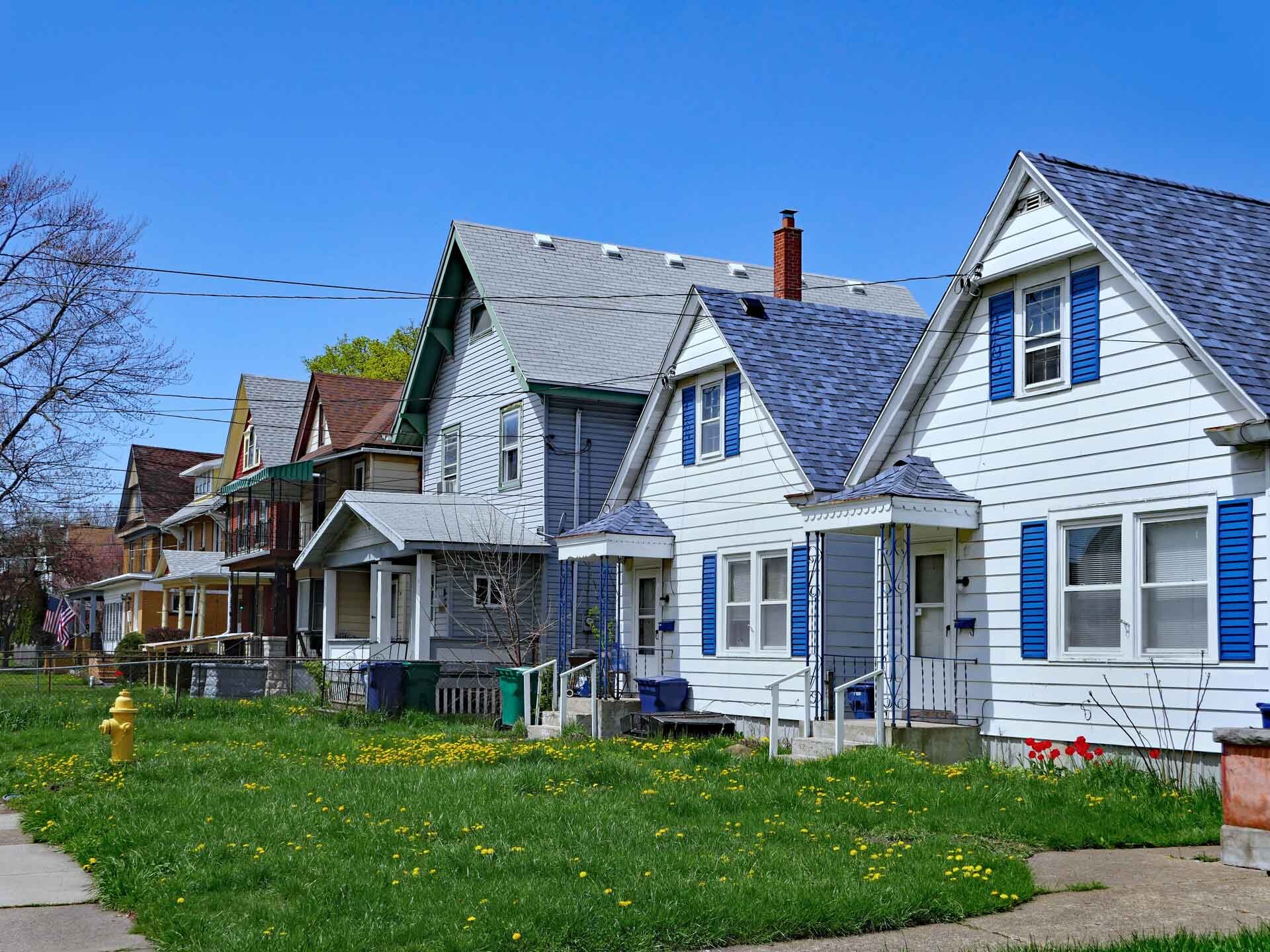Foreclosure can feel overwhelming and isolating, so you may find yourself asking: Can I Sell My Home if It’s in Foreclosure in Michigan? The short answer is often yes. In many cases, homeowners can sell their properties before foreclosure concludes, which can help them avoid auctions, evictions, and long-term credit damage. But how do you do it, and what options are out there? This blog breaks down the essential facts about foreclosure, offers ways to delay or stop it, and suggests practical strategies for selling before it’s too late.
Foreclosure begins when a borrower falls behind on mortgage payments and cannot catch up. Since a mortgage is a formal contract, your lender has the legal right to recover the money owed. If you fail to pay on time and exhaust possible solutions, the lender can arrange for the property to be sold at auction to reclaim the unpaid debt. This process can force you out of your home while delivering a significant blow to your credit score.
Across the country, a surprising number of people worry about losing their homes. A nationwide study found that nearly one million Americans feared foreclosure (U.S. Census Bureau Household Pulse Survey, July 27–Aug. 8, 2022). Falling behind on mortgage payments isn’t always about poor money habits, either—it can happen because of:
- An unexpected job loss that cuts off income.
- Costly medical bills or other mounting debts (such as credit cards).
- Major life events like divorce or the death of a partner.
- Relocation for work or personal reasons, without a quick home sale.
- Natural disasters or unforeseen property damage.
If you’re behind on payments in Michigan, you might feel trapped. However, you do have choices. One potential solution is working with a trusted home-buying company like Speedy Sale Home Buyers, which operates in Michigan. Such local companies often specialize in purchasing distressed homes for cash, providing straightforward offers that avoid the typical challenges of realtors, bank loans, and drawn-out closings.
What is Foreclosure?
Foreclosure happens when you can’t pay your mortgage and you run out of ways to catch up on overdue amounts. Imagine losing your primary source of income—maybe you or your spouse lost a job. You still have everyday bills plus the mortgage, but there isn’t enough money to go around. Even if you quickly find new work, the late payments could have piled up, making it difficult to settle everything in time. Once you’re significantly behind, your lender may begin the legal process known as foreclosure.
How Long Do You Have To Get Out of Your House After Foreclosure?
Homeowners often wonder how much time they have once a foreclosure starts. Generally, the steps include missed payments, a formal public notice, the actual foreclosure filing, a public auction, and finally eviction if you do not leave. However, each phase’s timeline varies by state. Some states allow a foreclosure to move forward in around 120 days, while others may take six to nine months.
Throughout this period, your lender will typically reach out via phone, email, and mail, informing you of critical deadlines and your rights. Regardless of where you live, it’s crucial not to ignore these communications. Staying in contact could open doors to alternative solutions.
The Different Types of Foreclosure
There are two different types of foreclosure you may experience: nonjudicial foreclosure or judicial foreclosure.
What Is Non-Judicial Foreclosure?
In some states, lenders can pursue foreclosure without going through the court system. This process, known as non-judicial foreclosure, is faster and less expensive for the lender. It relies on a “power-of-sale” clause in the deed of trust, giving the lender the authority to sell your Michigan home if you default.
If your state allows a non-judicial foreclosure, the lender typically sends written notices, publishes an announcement about the sale, and proceeds with auctioning your house. Homeowners often have limited time to respond, making it harder to halt the process without proactive measures.
What Is Judicial Foreclosure?
Other states require a lender to file a formal lawsuit. This is called judicial foreclosure. In this approach, the lender must present evidence to a court that you’ve defaulted. You will receive an official complaint or summons, and you must respond by a specific date. Ignoring it usually means automatic approval for the lender, allowing them to sell your home at auction.
If the house goes to auction under judicial foreclosure, it often sells below market value. You may still be on the hook for the difference between your mortgage balance and the auction price, known as a deficiency judgment. Because it’s generally time-consuming and costs the lender money in legal fees, many prefer to avoid judicial foreclosure if possible.
Get an offer today, sell in a matter of days.
START HERE: We buy houses in ANY CONDITION. Whether you need to sell your home fast for cash or list with a local agent for top dollar, we can help.
How to Sell Your House Before Foreclosure in Michigan
If you’re thinking, Can I Sell My Home if It’s in Foreclosure in Michigan? the good news is that you often can—provided you act fast. Let’s explore three typical ways to sell, depending on your timeframe and financial situation:

Hire A Real Estate Agent
Most Americans turn to a real estate agent for home sales, but foreclosure scenarios can complicate this path. An agent will list your home on the Multiple Listing Service (MLS), host open houses, and schedule showings. However, this route usually involves:
- Commissions and Fees: Standard commissions can run from 3% to 6% of the final sale price, which could be a substantial amount of money if you’re already behind on your mortgage.
- Uncertain Timelines: You might find a buyer immediately or it might take weeks or months, and even after you accept an offer, closing can stretch over 30 days or more. This is risky if your lender is moving quickly toward foreclosure.
Although you can sometimes secure a higher sale price on the open market, the ticking clock of foreclosure may make a traditional listing challenging. If you choose to use a realtor, let them know your timeline is urgent so they can prioritize a faster sale—though it’s no guarantee you’ll beat the foreclosure deadline.

Short Sale
A short sale happens when you owe more on your mortgage than the property is currently worth. For instance, imagine you owe $200,000, but houses in your neighborhood are only selling for around $150,000. Rather than foreclosure, the lender might allow you to sell the home for less than the mortgage balance in a short sale. Here’s what you need to know:
- Lender Approval: First, you must show financial hardship, such as permanent job loss or significant medical bills. You might submit recent pay stubs, W-2s, and a hardship letter detailing why you can’t catch up.
- Professional Assistance: You’ll usually need a real estate agent and an attorney who specialize in short sales. They’ll negotiate with the lender and potential buyers on your behalf.
- Credit Consequences: A short sale can damage your credit, often as severely as a foreclosure or bankruptcy, appearing on your credit report for up to seven years. Securing new credit or loans during that period can be difficult.
On the plus side, a successful short sale can protect you from going through foreclosure and possibly help you avoid some deficiency debts. Lenders often accept short sales because they’d rather get some money sooner than endure the expense of a lengthy foreclosure.

Sell Your House AS-IS to A Cash Buyer
For many homeowners, time is the biggest concern. You might be mere weeks from auction or fear receiving an eviction notice. In these situations, another path is selling directly to a cash buyer who can close quickly. Working with a reputable local investor in Michigan has multiple benefits:
- Speedy Closing: Some deals can wrap up in just a few days or weeks, often beating foreclosure deadlines.
- No Commissions or Fees: You typically avoid the realtor commission and many closing costs.
- No Repairs or Showings: Since cash buyers purchase properties “as-is,” you can skip repairs and open houses.
You might not get full market value, but the upside is a streamlined process that could save your credit and prevent an auction. Walk away with enough to cover your mortgage debt, and you get a fresh start without dragging foreclosure into your future.
Can You Stop Foreclosure Once it Starts?
Even if foreclosure is already underway, it’s sometimes possible to halt or delay it. If you’re dedicated to saving your home or selling it before losing it outright, consider these options:
- Pay Off Your Loan & Fees
- Declare Bankruptcy
- Apply for the Homeowner Affordability and Stability Plan (HASP)
- Sell Your House Fast to a Cash Buyer
Each path has different pros, cons, and time requirements. Depending on how far along your lender is in the foreclosure process, some methods may be more practical than others.
Pay Off Your Loan & Fees
If your finances are tight but not hopeless, you might find creative ways to catch up on missed payments. Options include:
Liquidating Valuable Assets: Selling a vehicle you don’t need or other property to raise cash.
Personal Loans from Friends or Family: Borrowing money short-term if someone can lend at low or no interest.
Budget Overhaul: Sitting down with a financial expert who can help you redirect funds toward overdue mortgage bills.
Catching up on payments can be stressful, but it’s one of the most direct ways to stop foreclosure. If you do manage to pay off all late amounts plus fees before the lender completes the foreclosure, you can save your home and avoid a major credit setback.
Declare Bankruptcy
Bankruptcy is a serious legal procedure that can momentarily stop foreclosure through an “automatic stay,” preventing lenders from collecting debts or selling your home—at least until the bankruptcy is processed or resolved. While this pause might give you breathing room, there are substantial downsides:
Long-Term Credit Damage: A bankruptcy remains on your credit report for up to seven years, restricting your ability to take out new loans or even qualify for certain apartments.
Complex Process: You’ll need a specialized lawyer, and the legal proceedings can be lengthy and emotionally draining.
Possible Post-Bankruptcy Foreclosure: If you can’t create a workable repayment plan, lenders can eventually continue with foreclosure after the bankruptcy case.
Bankruptcy should generally be a last resort, used only if you see no other way to address crushing debts.
The Homeowner Affordability and Stability Plan (HASP)
If your mortgage payments are high relative to your income, you might be eligible for the Homeowner Affordability and Stability Plan (HASP). This government-backed loan modification program is designed for borrowers at risk of foreclosure because their income no longer covers their monthly payments. Under HASP, your lender might:
- Lower your interest rate or extend the loan term.
- Temporarily reduce or suspend your payments to align with a recent drop in income.
To see if you qualify, visit the official HASP or associated government websites, where you can complete an application. While it’s no guarantee of acceptance, it can be a lifesaver for people struggling to keep up with sudden financial changes. Apply for the program here to see if you qualify.
Related Articles
5 Ways the Foreclosure of Your Michigan House Will Impact You in the Future
What Homeowners in Michigan Can Expect During the Foreclosure Process
The Difference Between Pre-Foreclosure and Foreclosure for Homeowners in Michigan
How to Sell Your House During Bankruptcy in Michigan
Stopping the Foreclosure Process: A Guide for Michigan Homeowners
What Rising Foreclosure Rates Mean for Home Buyers and Sellers in Michigan
Avoiding Foreclosure: How Michigan Direct Property Buyers Can Help You Keep Your Credit Score Intact
How to Sell Your House in Michigan if You Owe More Than It’s Worth
4 Things to do if You Are Upside-Down on Your Mortgage in Michigan
Traditional Sales vs. Short Sales And Foreclosures in Michigan
Sell Your House Fast to a Cash Buyer
If preserving the house isn’t an option, or if your main goal is to avoid foreclosure’s lasting damage, selling quickly to a reputable cash investor can be a smart escape hatch. You won’t go through months of listings, repairs, or showings. Instead, you’ll receive a direct offer. Here’s why it’s a worthwhile solution:
Foreclosure Avoidance: By closing on your own terms, you sidestep the final stages of foreclosure and reduce the impact on your credit.
Freedom From Debt: A quick cash sale can give you enough money to pay off what you owe, allowing you to start fresh.
Stress Reduction: Instead of battling the bank or risking an auction, you can finalize everything swiftly and get on with your life.
Granted, you’ll likely sell below the top market price. Yet, when weighed against the potential consequences of foreclosure—such as a deficiency judgment or a heavily damaged credit report—many homeowners find the trade-off worthwhile. A fast sale often brings peace of mind and financial relief.
We Buy Houses in Foreclosure & Pre-foreclosure–
Get Your Offer Today!
Does the idea of finally walking away from a property without the storm cloud of foreclosure hanging over your head? Contact a real professional at Speedy Sale Home Buyers to find out more and get a fair cash offer for your property today.
Whether you decide to pay off your debt, declare bankruptcy, try for a loan modification, or sell directly to a cash buyer, remember that the earlier you act, the more choices you have. Can I Sell My Home if It’s in Foreclosure in Michigan? Yes, in most cases you can, but waiting too long can limit your options.
If you’re ready for a no-hassle solution, connect with a trusted local investor like Speedy Sale Home Buyers. They’re established in Michigan and understand that every homeowner’s situation is unique. Their goal is to provide a fair, fast offer so you can move forward without the foreclosure cloud looming over your future. Don’t let missed payments define your life—explore your options, make a plan, and find the path that best protects your finances and peace of mind.

